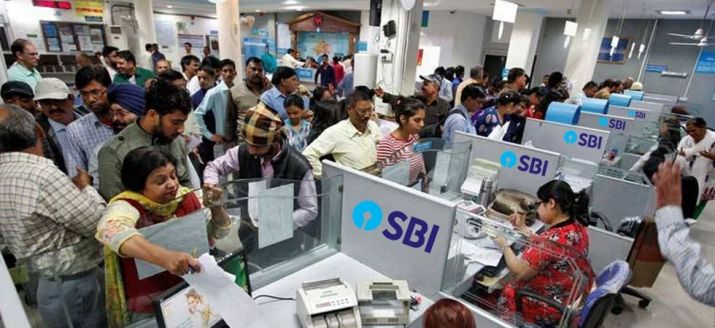State Bank of India (SBI) is the largest commercial bank in India and one of the largest banks in the world by assets. Established in 1955, SBI has over 500 million customers and a nationwide network of over 22,000 branches and 58,000 ATMs.
CASE STUDY ON SBI
SBI has a long history of serving the banking needs of India and has played a significant role in the country's economic development. In recent years, SBI has embraced digital transformation and has made significant investments in technology to improve its services and reach a wider customer base.
One of the key initiatives in SBI's digital transformation journey was the launch of SBI YONO, a mobile banking platform that provides customers with a wide range of banking services and financial products, including loans, insurance, and investments. SBI YONO has been a huge success, with over 20 million registered users in just a few years of its launch. The platform has made banking services more accessible and convenient for customers, particularly for those in rural areas who may not have easy access to a traditional branch.
SBI has also made significant investments in technology infrastructure to improve its core banking services. This includes the implementation of a centralized core banking system that has improved the efficiency and accuracy of banking operations, as well as the roll-out of ATMs and Point of Sales (POS) terminals to make banking more accessible. In addition, SBI has also launched a range of digital services, such as mobile banking, internet banking, and SMS banking, to make banking more convenient for its customers.
Another key initiative of SBI's digital transformation journey has been its focus on financial inclusion. SBI has implemented a number of programs to reach unbanked and underserved communities, including the launch of a range of microfinance and small business loans, as well as the roll-out of basic savings accounts. These initiatives have helped to bring millions of people into the formal banking system and have contributed to the financial and economic empowerment of these communities.
State Bank of India (SBI) is a multinational public sector banking and financial services company based in Mumbai, India. With over 500 million customers and a nationwide network of over 22,000 branches and 58,000 ATMs, SBI is one of the largest banks in the world by assets. The bank was established in 1955 with the goal of serving the banking needs of India and has since played a significant role in the country's economic development.
In recent years, SBI has embraced digital transformation and has made significant investments in technology to improve its services and reach a wider customer base. This has been achieved through a combination of initiatives aimed at modernizing the bank's core operations, expanding its digital services, and reaching underserved communities through financial inclusion programs.
One of the key initiatives in SBI's digital transformation journey was the launch of SBI YONO, a mobile banking platform that provides customers with a wide range of banking services and financial products, including loans, insurance, and investments. SBI YONO has been a huge success, with over 20 million registered users in just a few years of its launch. The platform has made banking services more accessible and convenient for customers, particularly for those in rural areas who may not have easy access to a traditional branch. The platform also provides customers with a range of non-banking services, such as shopping and booking travel tickets, further enhancing the convenience of using the platform.
SBI has also made significant investments in technology infrastructure to improve its core banking services. This includes the implementation of a centralized core banking system that has improved the efficiency and accuracy of banking operations, as well as the roll-out of ATMs and Point of Sales (POS) terminals to make banking more accessible. In addition, SBI has also launched a range of digital services, such as mobile banking, internet banking, and SMS banking, to make banking more convenient for its customers.
SBI has also been at the forefront of the Indian government's drive to promote financial inclusion, with a focus on reaching underserved and unbanked communities. This has been achieved through a range of initiatives, including the launch of basic savings accounts, microfinance and small business loans, and the deployment of banking correspondents and mobile banking vans in rural areas. These initiatives have helped to bring millions of people into the formal banking system and have contributed to the financial and economic empowerment of these communities.
Another area where SBI has embraced technology is in its lending operations. The bank has implemented a range of digital tools and platforms to streamline its loan processing and approval process, making it faster and more convenient for customers. For example, SBI has launched an online platform for personal loans, allowing customers to apply for a loan and track their application status from the comfort of their own home. The bank has also implemented an automated loan approval system that uses machine learning algorithms to analyze loan applications and make approval decisions in real-time.
SBI has also been actively involved in promoting the use of digital payments in India, in line with the government's goal of a cashless economy. The bank has launched a range of digital payment products, including mobile wallets, UPI (Unified Payments Interface), and a cardless cash withdrawal service. SBI has also been working closely with merchants and merchants associations to promote the adoption of digital payments, and has set up thousands of POS terminals across the country to make digital payments more accessible.
In conclusion, SBI's digital transformation journey has been a huge success, and the bank has made significant progress in improving its services, reach, and customer experience. With a strong commitment to technology and financial inclusion, SBI is well positioned to continue to be a leader in the Indian banking industry for many years to come

Comments
Post a Comment